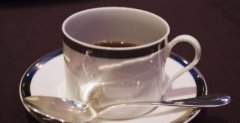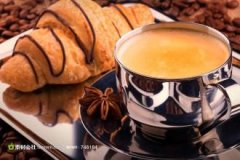A brief introduction to the Origin, Development, History and Culture of Fine Coffee beans in Atlanta Manor, Jamaica

The cool weather, foggy weather and frequent rainfall reconcile the rich land of Rain Water. Here people use mixed planting to grow coffee trees next to banana and avocado trees on terraces.
Some small estates also grow Blue Mountain Coffee, such as Wallenford Estate, Silver Hill Estate and Atlanta Estate in J.Martinez. Even the largest landowners in the region are small-scale growers by international standards, many of whom are small landowners whose families have been working on the land for two centuries. The coffee industry in Jamaica faces a series of problems, such as the impact of hurricanes, the increase in labor costs and the difficulty of mechanizing terraces. It is difficult to rationalize planting on many small estates and farms.
However, Blue Mountain Coffee is one of those coffee retailers that value credibility to stock some coffee no matter what. A leading British retailer said: no matter what the price, he will continue to sell Blue Mountain coffee all year round because he has many customers who only recognize "Blue Mountain".
Maybe Jamaica Blue Mountain Coffee is the most famous coffee in the world, but in fact, few people know its history and why its price is so high. The first person to introduce coffee to the island of Jamaica in 1789 was a Frenchman who escaped the French Revolution. The first coffee was cultivated to increase local consumption and export in France, and the local industry was very small in the first 100 years. However, in 1932, the Jamaican Conference Law was passed to encourage coffee farming to reduce the island's dependence on sugar exports. In order to ensure the quality of Blue Mountain Coffee, changes have been made in the "Jamaican Coffee Industry" to standardize the processing process, improve coffee quality and make marketing equal, so as to save the fate of top coffee. The Jamaican Industry Association is responsible for the quality of Jamaican Blue Mountain Coffee. In addition, the lush smaller coffee on the island is equally good, and gives final authority to Jamaican coffee exports-all coffee must go through the Jamaican Industry Association before it can be exported.
People may ask why Jamaican Blue Mountain Coffee is so special. The answer is everything about it. The real Blue Mountain Coffee is one of the most advantageous coffee growing conditions in the world. The weather, geological structure and topography of Jamaica provide a unique ideal place. The designated Jamaican Blue Mountain Coffee can only be grown in the Blue Mountain area, north-east of the island of Jamaica in Kingston. Coffee grows on a mountain with a maximum height of 1800 meters (almost 6000 feet), which is already quite high for small-grain coffee, and the mountains are very uneven and the process of harvesting is very difficult (coffee harvesting is almost entirely female). The tree is mainly small grain "Geisha High Bred" type. Seeds from these trees have been exported to other countries, such as Hawaii, Kenya, Papua New Guinea and elsewhere, but they are no longer able to create the flavor of Blue Mountain coffee beans anywhere.
In the steep and high-altitude mountains, careful farming and harvesting, all Jamaican Blue Mountain coffee is ground, tasted and distributed by the Jamaican Industry Association. The coffee in the cup tastes very clean, and it is one of the sweetest coffee in the world. This taste has been described by Jim Reynolds in Peet coffee and tea: "the best example of Jamaican Blue Mountain Coffee is its aroma, smoothness and richness." it makes me feel like a gem. It's as precious as a gem. It's complex, but very mild, it's sweet, it's very mellow. You have to taste it in order to know what I'm talking about. Unique growth conditions and careful production make Jamaican Blue Mountain Coffee very famous.
Jamaica is one of the small coffee producing regions in the world, with an annual harvest of about 40000 bags-60 kg / sack (most of the Jamaican Blue Mountain coffee is actually shipped away in 70 kg barrels, they are the last countries to still use this traditional packaging method, but they produce 60 kg/ sacks, as that is the international standard for measuring coffee production). Compare Brazil, the world's largest exporter of coffee, with an annual production of 30000000 bags to 60 kg per sack.
Before 2008, the Japanese continued to invest heavily in the entire industry chain of Jamaican Blue Mountain Coffee and promised to underwrite 90% of its annual production. As a result, the rest of the world has only a 10% quota, resulting in a trend that demand has been falling short of supply, and prices have gone up.
The unique growth conditions give birth to the unique flavor of Blue Mountain Coffee and make it one of the "gourmet Coffee". 100% of the world's pure Blue Mountain Coffee refers to a specific range of Blue Mountain Coffee in eastern Jamaica, and every step in its planting and processing has been subject to stringent standards of quality management by the Jamaica Coffee Industry Authority. can be proved to be "pure Jamaican Blue Mountain Coffee".
The special conditions such as abundant rainfall, year-round fog and low temperature, average temperature of about 20 ℃ and fertile new volcanic soil constitute a good growing environment for Blue Mountain Coffee. Located at a high altitude of 2200 to 6000 feet, it creates a unique slightly sour taste, but it is not at all exciting or uncomfortable. It takes about 2 years for seedlings to be cultivated in the nursery. Organic fertilizers are used during their growth, and they are harvested one grain at a time during harvest. All processing, baking and packaging processes must meet the high standards set by the Jamaica Coffee Industry Authority.
Typica with low quantity and good quality is the best variety of Arabica. Most coffee-producing countries are only willing to grow other varieties with high yield but poor quality, but Jamaica gives priority to quality, preferring to sacrifice the production of Blue Mountain coffee in exchange for the best quality of Blue Mountain coffee.
100% pure Jamaican Blue Mountain Coffee, with its strong and attractive elegance, is indeed unmatched by other coffees. When it goes through the steps of grinding, brewing and tasting, it gives full play to its flavor, and it is difficult not to get drunk with the aroma of coffee around. Its caffeine content is very low, about half of that of other varieties of coffee, which meets the health requirements of modern people.
Now, 90% of the post-harvest Blue Mountain coffee is bought by the Japanese. In 1992, Jamaica sold 688 tons of Blue Mountain coffee to Japan, 75 tons to the United States and 59 tons to Britain. Now that the rest of the world can only get 10% of the output of Blue Mountain coffee, regardless of the price, blue mountain coffee is always in short supply. In the UK, Langford Brothers Brothers has been the only supplier for many years. Later, the Edmunds Group (Edmonds Group) also received supplies from Jamaica's Salda Food Company (Salda Foods).
Langford Brothers Brothers is a licensed Jamaican Blue Mountain Coffee brand.
The difference in transportation between Blue Mountain Coffee and other coffee is that it is transported in barrels with a capacity of 70 kilograms, a replica of Bonifieur barrels produced in Guadeloupe in the last century. The barrel was originally used to carry flour shipped from the United Kingdom to Jamaica, usually with a trademark and the name of the manufacturer. The Coffee Industry Council issues certificates for all authentic Jamaican coffee and bears a stamp of approval before export.
The Jamaican government used to insist that all Blue Mountain coffee is roasted in Jamaica to ensure that the quality remains the same. In fact, baking is a fine art, and it takes experience, training and expensive equipment to do a good job. From the consumer's point of view, coffee beans should be obtained and drunk immediately after baking. Coffee roasting in Jamaica is unlikely to meet this requirement. Now, Jamaican raw coffee beans can be exported to Jamaica Blue Mountain new coffee beans.
The real Blue Mountain Coffee is one of the most advantageous coffee growing conditions in the world. The weather, geological structure and topography of Jamaica provide a unique ideal place. The ridge across Jamaica extends to the eastern part of the island, with the Blue Mountains rising to more than 2100 meters.
Important Notice :
前街咖啡 FrontStreet Coffee has moved to new addredd:
FrontStreet Coffee Address: 315,Donghua East Road,GuangZhou
Tel:020 38364473
- Prev

Superior Jamaican Blue Mountain Coffee Atlanta Manor boutique Coffee Bean Flavor, Taste and aroma characteristics
Some small estates also grow Blue Mountain Coffee, such as Wallenford Manor, Silver Mountain Manor and Martinez's Atlanta Manor, which are also small-scale plantations, many of which are small landowners whose families have been working on this land for two centuries. The coffee industry in Jamaica is facing a series of problems, such as the influence of the whirlwind, the increase of labor costs and the increase of holidays.
- Next

The market price of boutique coffee beans in Atlanta Manor, Jamaica, which is full of fruit and sour taste.
In 1717 King Louis XV of France ordered the cultivation of coffee in Jamaica, and in the mid-1920s, the Governor of Jamaica, Sir Nicholas Lawes, imported Arabica seeds from Martinique and began to plant them in St. Andrew. To this day, the St. Andrews area is still the Jamaican Blue Mountain Coffee.
Related
- Does Rose Summer choose Blue, Green or Red? Detailed explanation of Rose Summer Coffee plots and Classification in Panamanian Jade Manor
- What is the difference between the origin, producing area, processing plant, cooperative and manor of coffee beans?
- How fine does the espresso powder fit? how to grind the espresso?
- Sca coffee roasting degree color card coffee roasting degree 8 roasting color values what do you mean?
- The practice of lattes: how to make lattes at home
- Introduction to Indonesian Fine Coffee beans-- Java Coffee producing area of Indonesian Arabica Coffee
- How much will the flavor of light and medium roasted rose summer be expressed? What baking level is rose summer suitable for?
- Introduction to the characteristics of washing, sun-drying or wet-planing coffee commonly used in Mantenin, Indonesia
- Price characteristics of Arabica Coffee Bean Starbucks introduction to Manning Coffee Bean Taste producing area Variety Manor
- What is the authentic Yega flavor? What are the flavor characteristics of the really excellent Yejasuffi coffee beans?

